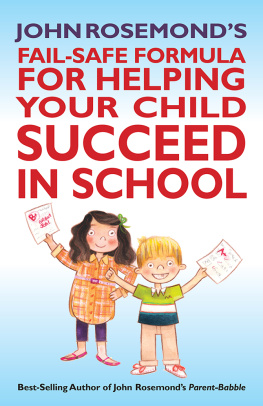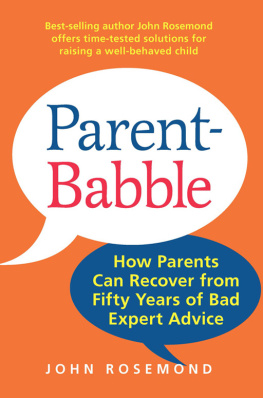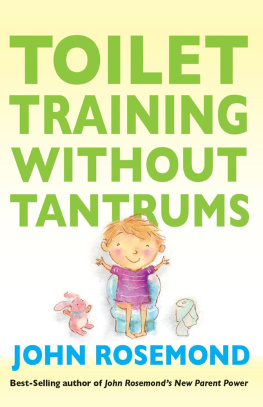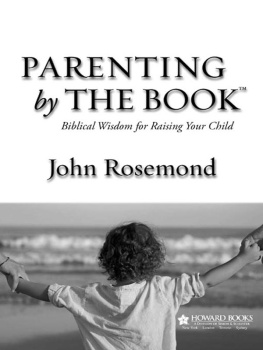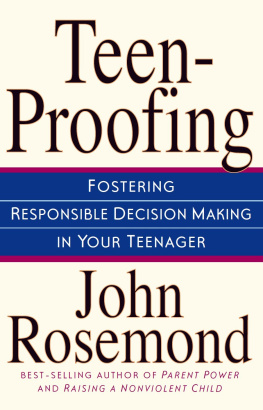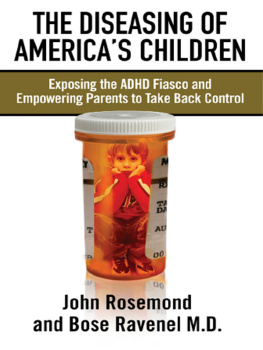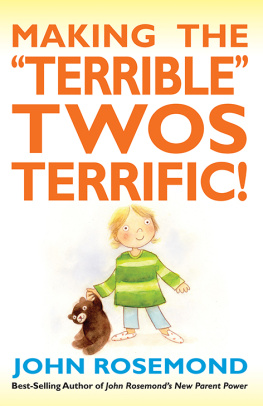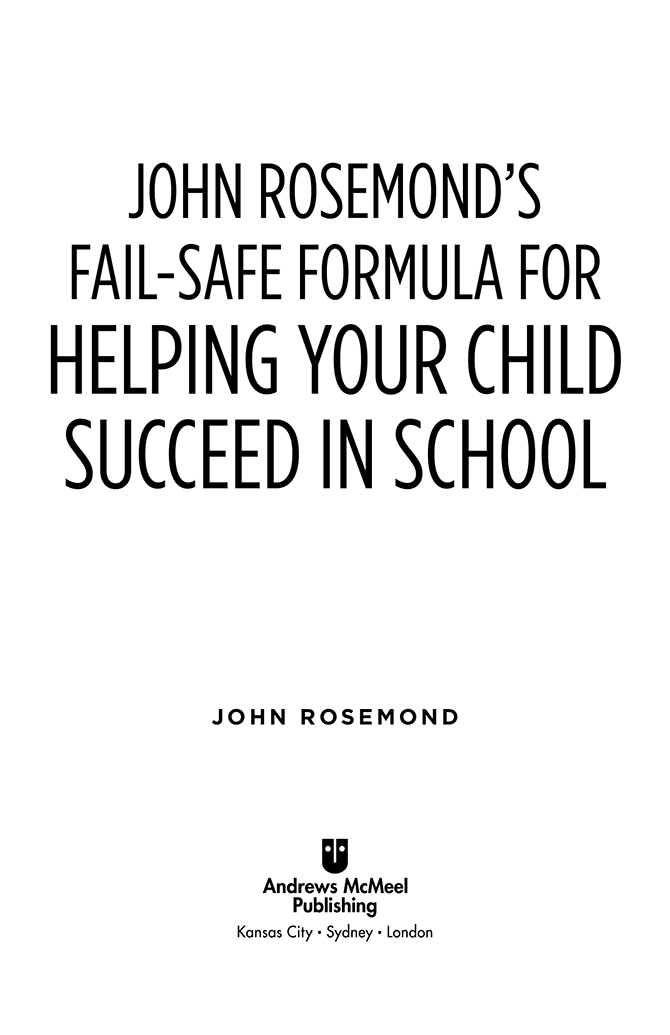INTRODUCTION
Love Is Always Lovelier the Second Time Around
In 1990, Andrews McMeel published the first version of this book, titled Ending the Homework Hassle . It did quite well, in every sense of the term. It sold extremely well, more than enough for me to make back my advance and then some, which is every authors immediate goal. Best of all, it accomplished my purpose. Over the years, many parents have told me the book helped them solve major school performance and classroom behavior problems. That means it also helped children become happier little people. Educators liked it too. A good number of schools made it required reading for their teachers, many of whom told me they often recommended it to parents.
As the title implies, that first version focused largely on homework management. At the time, schools were beginning to embrace the entirely imprudent notion that parental involvement in homework would pay off in higher achievement. I knew that wasnt and wouldnt be the case and said so several times in my syndicated newspaper column. Nonetheless, schools pressed on, pressuring parents to help their kids with homework, study for tests, and partner with them on science projects. It certainly caught on. Today, it is the rare parent who is not involved in her childs homework, making sure it gets done and back to school without error. The use of the female pronoun in that sentence was deliberate. I would guess that mothers make up 95 percent of adult homework helpers.
And sure enough, my prediction has proven correct. As parent involvement in homework has increased, student achievement across the demographic spectrum has declined. There is no empirical evidence that this very dysfunctional practice is bearing anything but rotten fruit. Although the people who encouraged and still encourage it have college degrees, it does not take a college degree to understand why adult participation in homework is counterproductive.
- First, a child who knows his mother is prepared to reteach the material at home is incentivized to not pay attention in class. In effect, the child exchanges paying attention in class for his mothers one-on-one attention at home. Furthermore, the less he pays attention in class, the more of his mothers attention he receives. Common sense will tell you this is a counterproductive arrangement and that the child in question is gifted with an amazing ability to grasp interpersonal dynamics.
- Second, when responsibility for homework is shared, the child does not feel ownership of the work and therefore does not feel the need to put forth much effort. Shared responsibility means the benefit to the child is much lower.
- Third, the adult ends up being an enabler, doing things for the child that the child is capable of doing for himself. No matter the context or issue, enabling weakens the skill-set of the person being enabledalways.
- Fourth, the more the mother enables, the more she identifies with and personalizes her childs school performancegrades, especiallywhich means that his grades become her grades, making it all but inevitable that she will complain when a grade is not what she thought it should be.
Now, if one reasonably smart guyyours trulycan figure that out, why hasnt anyone in Americas vast education establishment come to the same conclusion? Because despite a complete lack of evidence that parent participation in homework is working and an abundance of evidence to the commonsensical effect that it is not working, schools continue to recommend that parents get involved in their childrens homework. In psychological terms, Americas schoolspublic and privateare in denial about this issue. The evidence is staring them in the face, and they refuse to acknowledge it. Such is the nature of bureaucracies. Once a bunch of bureaucrats decides that something should be done a certain way and that way becomes standard practice but consistently fails to generate positive outcomes, it can take the proverbial (and sometimes literal) act of Congress for the bureaucrats to decide that the thing should not be done any longer. Americas education establishment has been cheerleading for parent participation in homework since the 1970s and is not about to admit it isnt working. At this point, the education bureaucracy is not about to yield to the evidence thats staring them in the face.
Time has proved me right, and so I continue to encourage parents to stay a safe distance from their childrens homework. And by the way, I have never had a parent tell me that she followed my homework management plan as described in and her child suffered permanent academic collapse. Quite the contrary, parents tell me that after an inevitable but temporary period of adjustment on the childs part (during which time the childs performance may go slightly downhill), the child begins doing better than ever in school. More than one mom has told me, tongue in cheek, Your book saved my childs life, John. Did I mention that parent participation in homework can drive a parent to the brink of filicide?
A few years after writing Ending the Homework Hassle , I began to wish I could rewrite certain portions. Id learned a lot in the interim, and even though parents and teachers continued to give the book high marks, my personal dissatisfaction was growing. By the turn of the new millennium, I was telling people to skip over the chapter on the answer being never . Once youve read the chapter and if you have a continuing interest in the subject, youll find a great deal more information in The Diseasing of Americas Children .
Ive whacked a bunch of material from Ending the Homework Hassle , but Ive added a lot as well, including a chapter on . Im a fan of homeschooling. If my wife and I had it to do all over again, we would homeschool our kids all the way through high school. Im a regular speaker at homeschool conferences, and I talk with lots of homeschooling parents. For several years, I served on the board of parentalrights.org, which spun off from the Home School Legal Defense Association. In the process of this semi-immersion in homeschool culture, Ive come to the conclusion that most homeschool moms have bought right into the prevailing parent involvement myth.
But John, hundreds of homeschooling moms have said to me, I homeschoolI have to be highly involved, dont I?
My answer to that question is in . Dont want to ruin it for you.
Ive also greatly expanded the Q&A section at the end of each chapter.
So for all those reasons, I felt that a new title was appropriate for this rewrite: John Rosemonds Fail-Safe Formula for Helping Your Child Succeed in School .
I sincerely hope this book will be even more helpful to more parents (and therefore children) than was the original version. It ought to be. Im older, wiser, and generally much improved over the John Rosemond I was in 1990. Aging can do that to you should , in fact.

